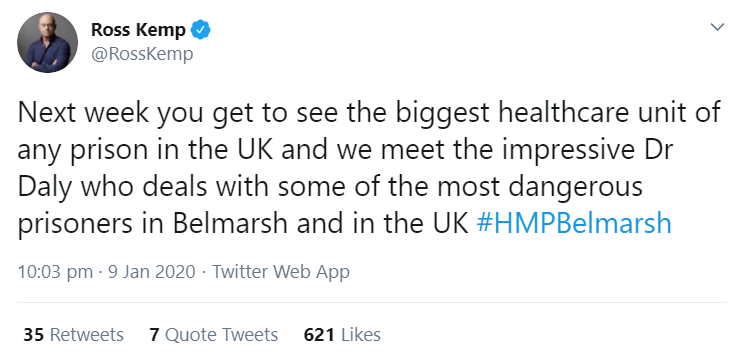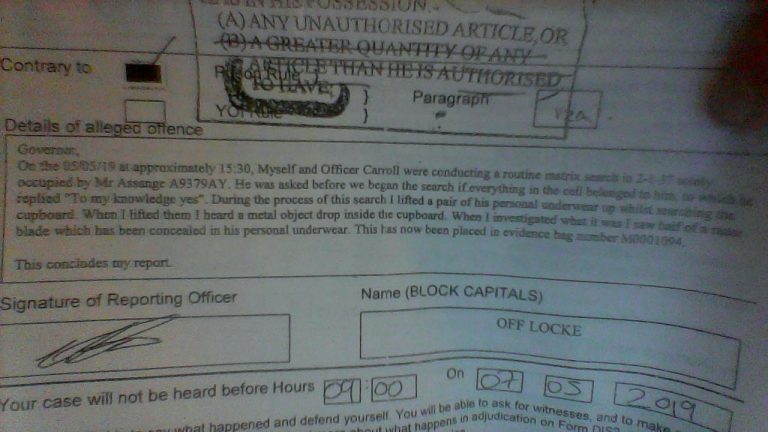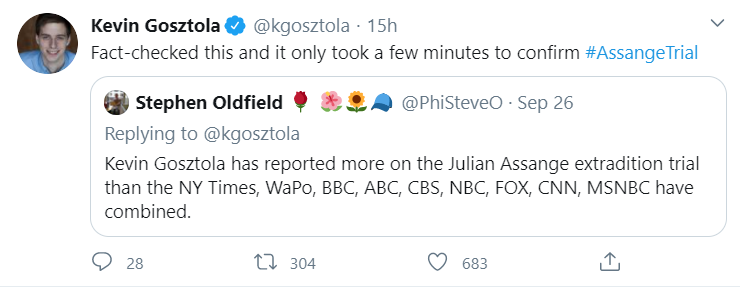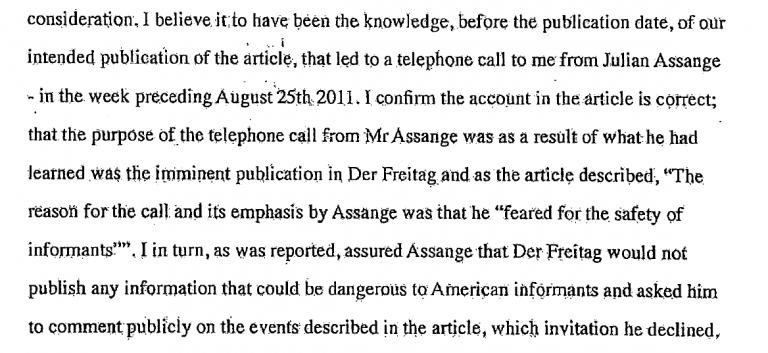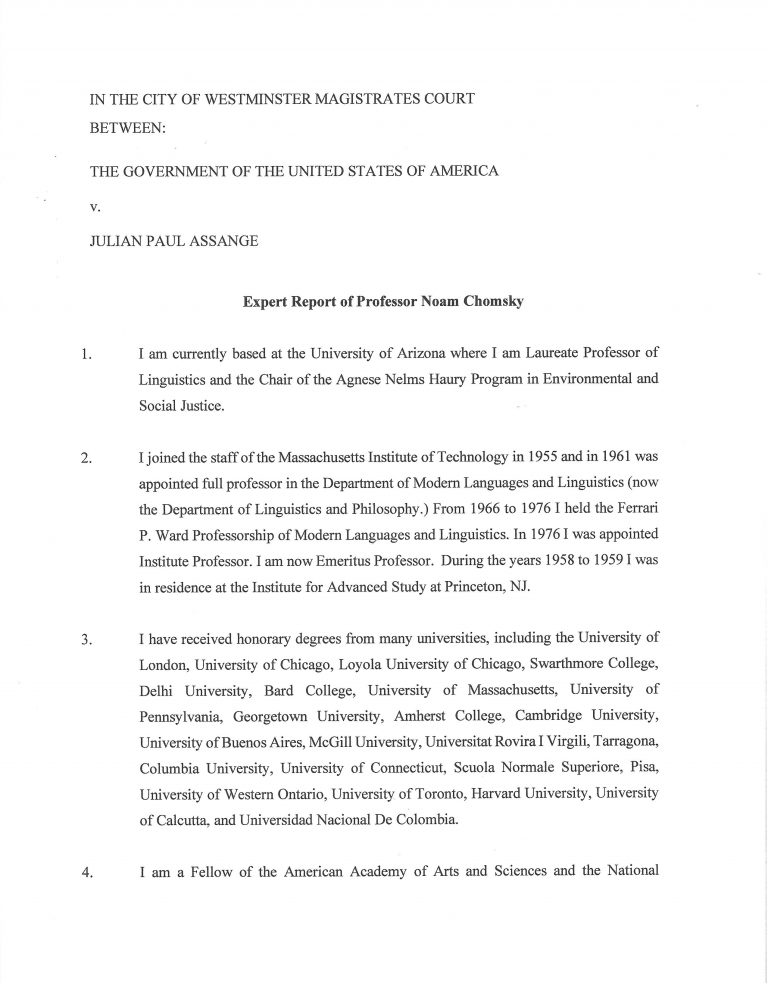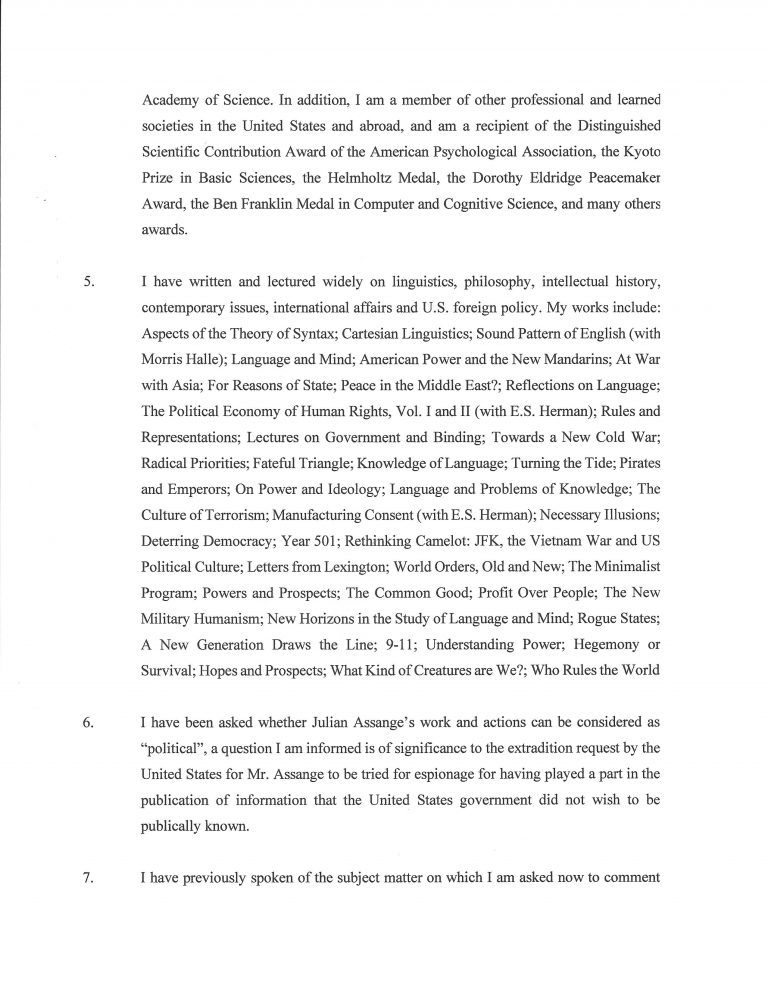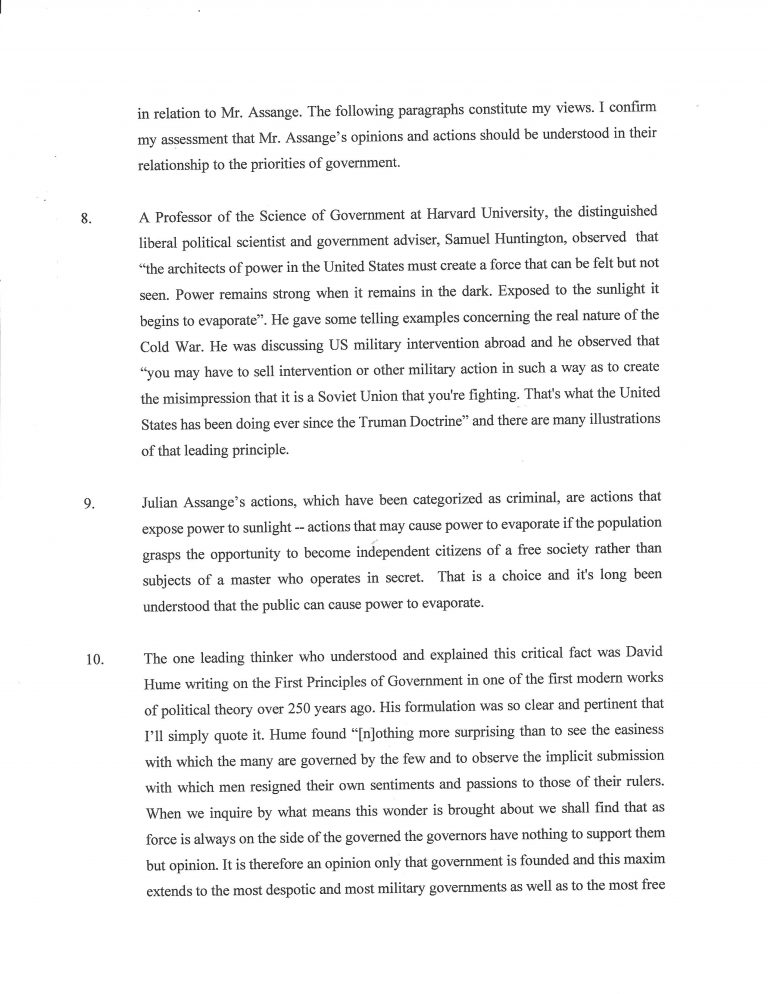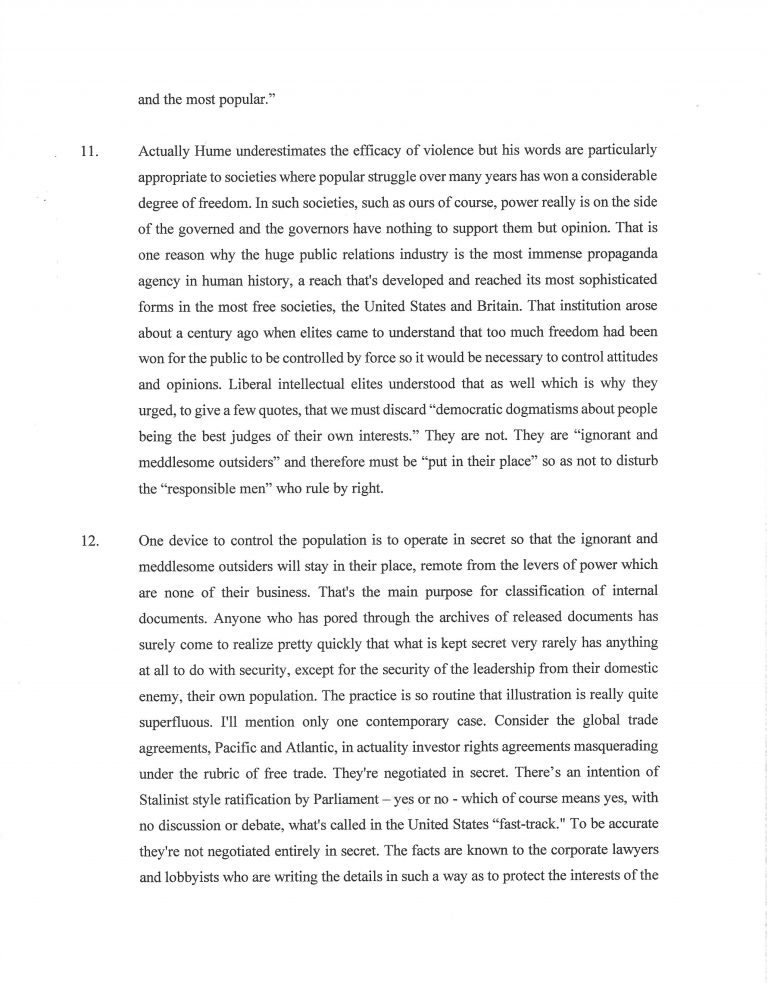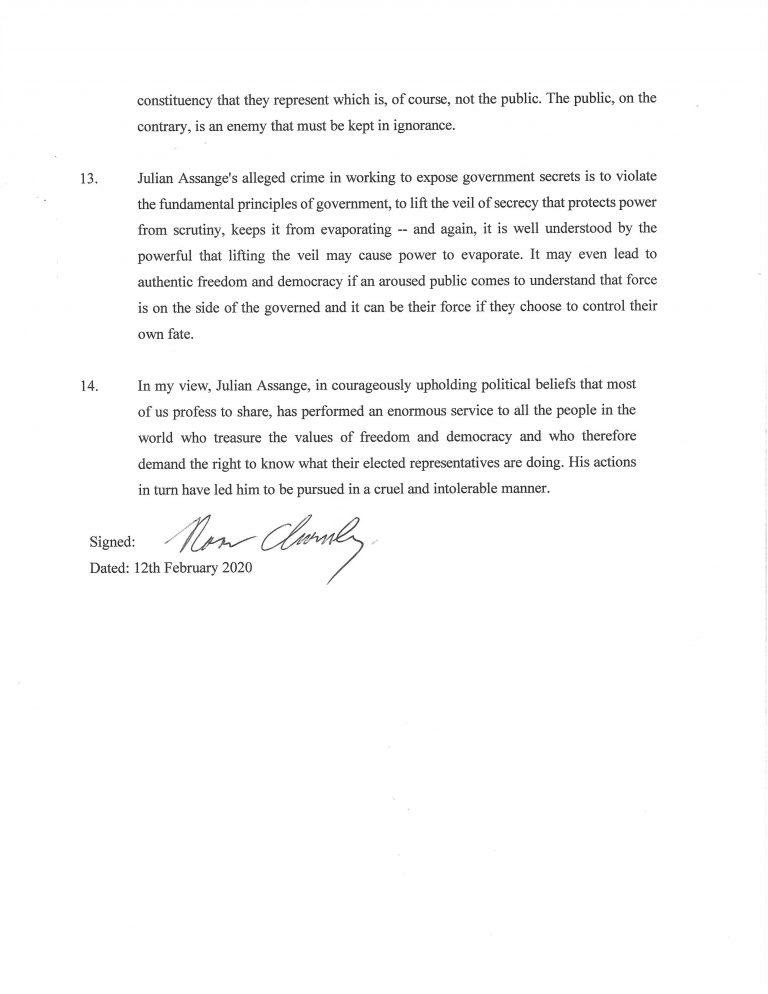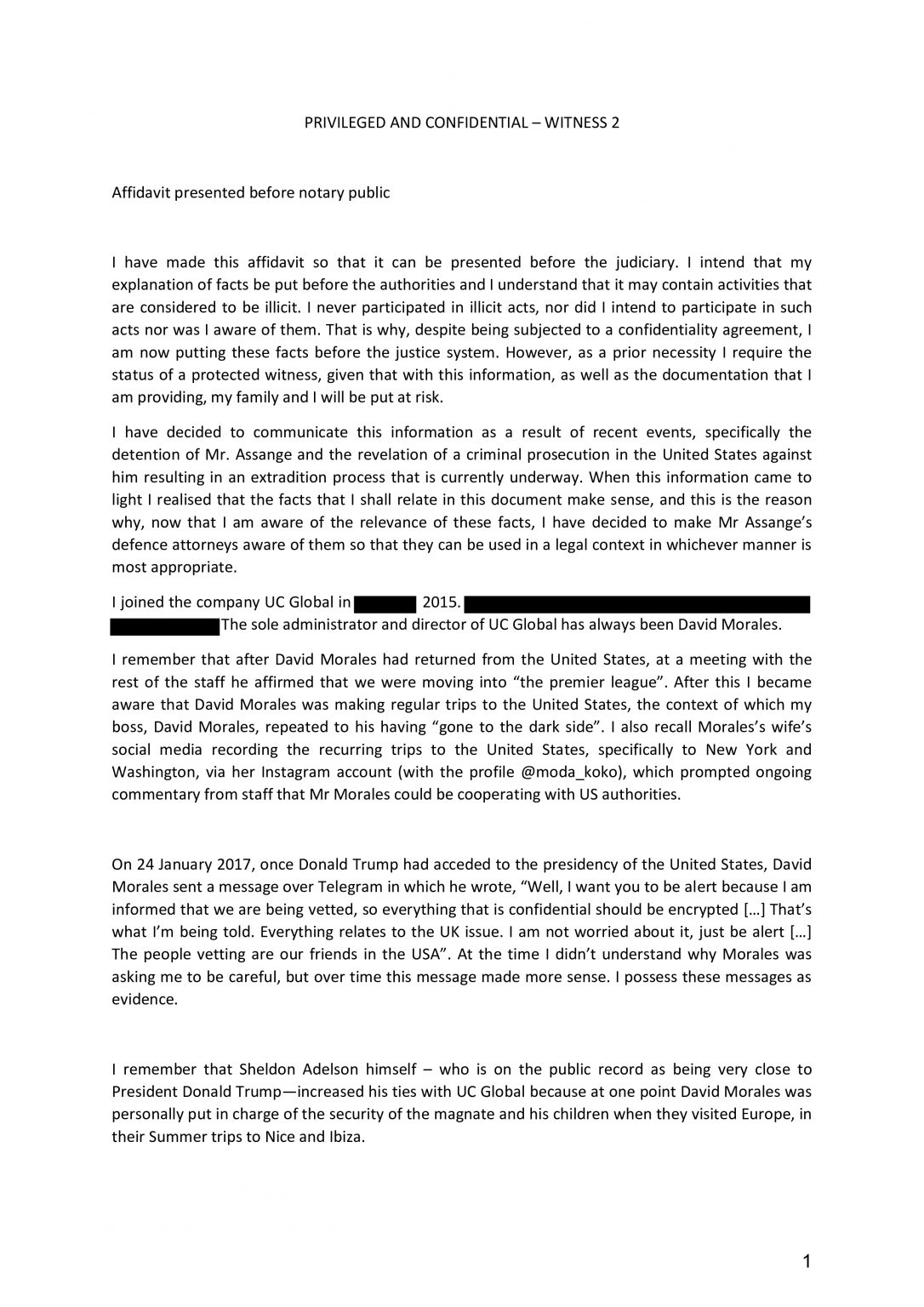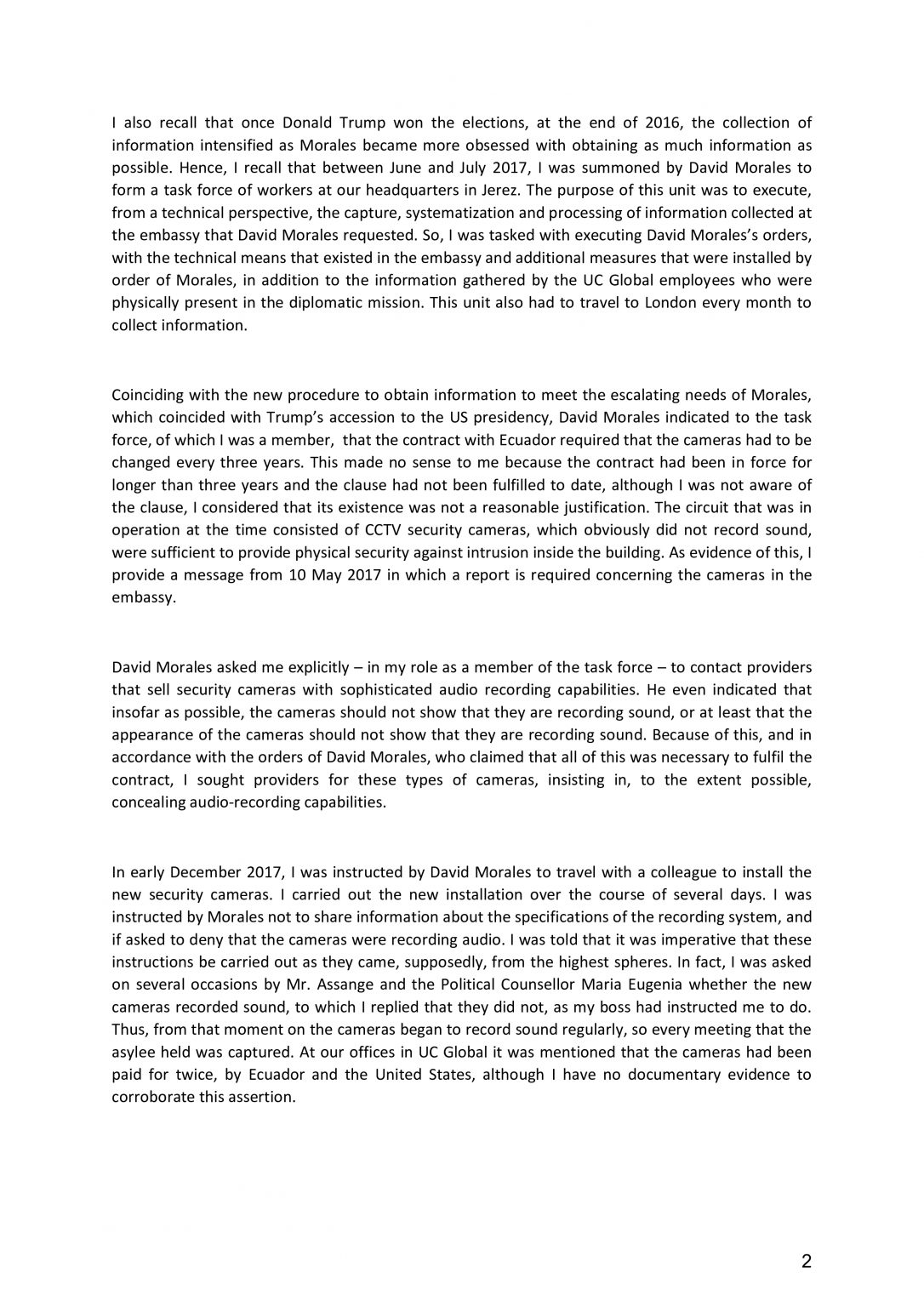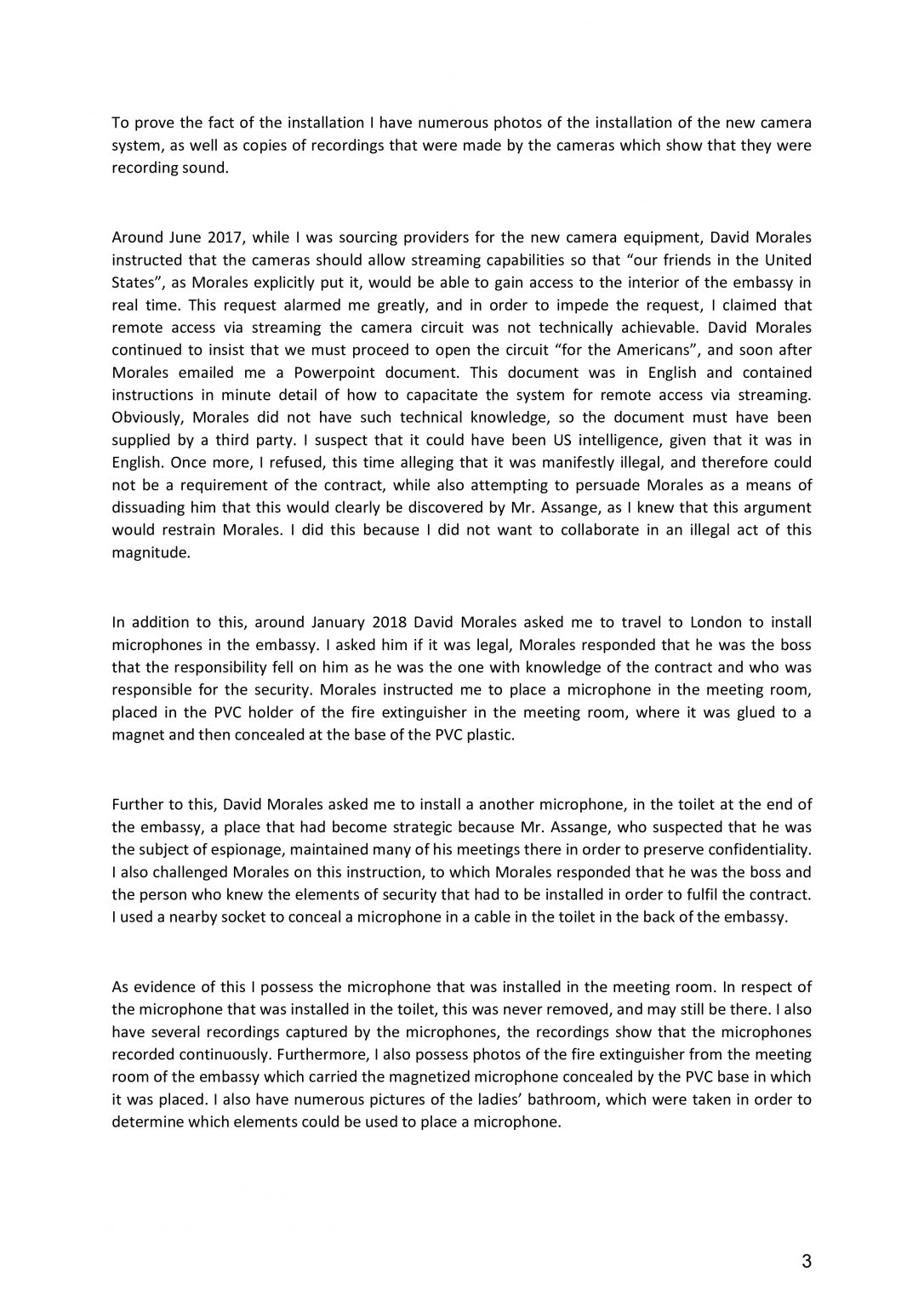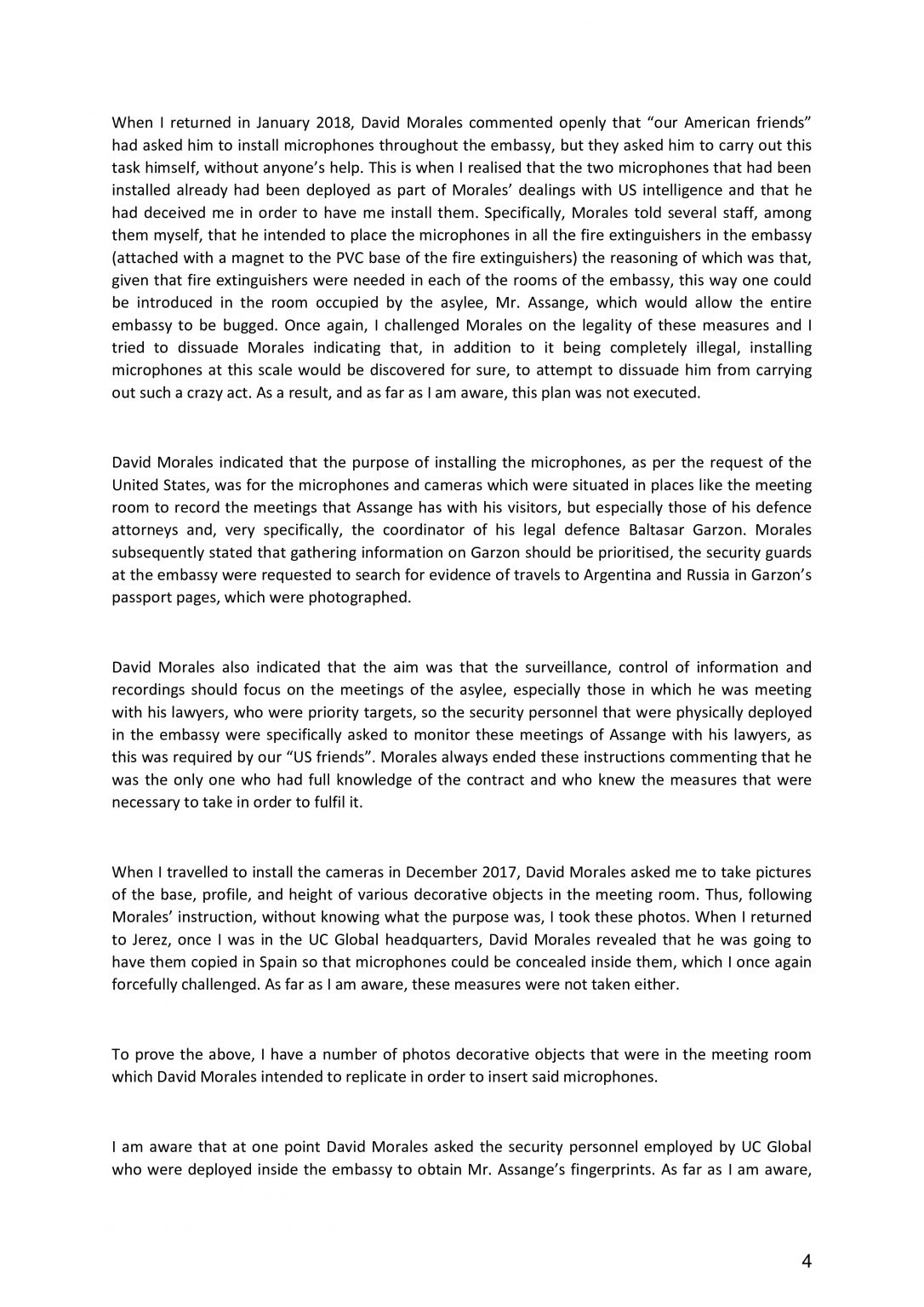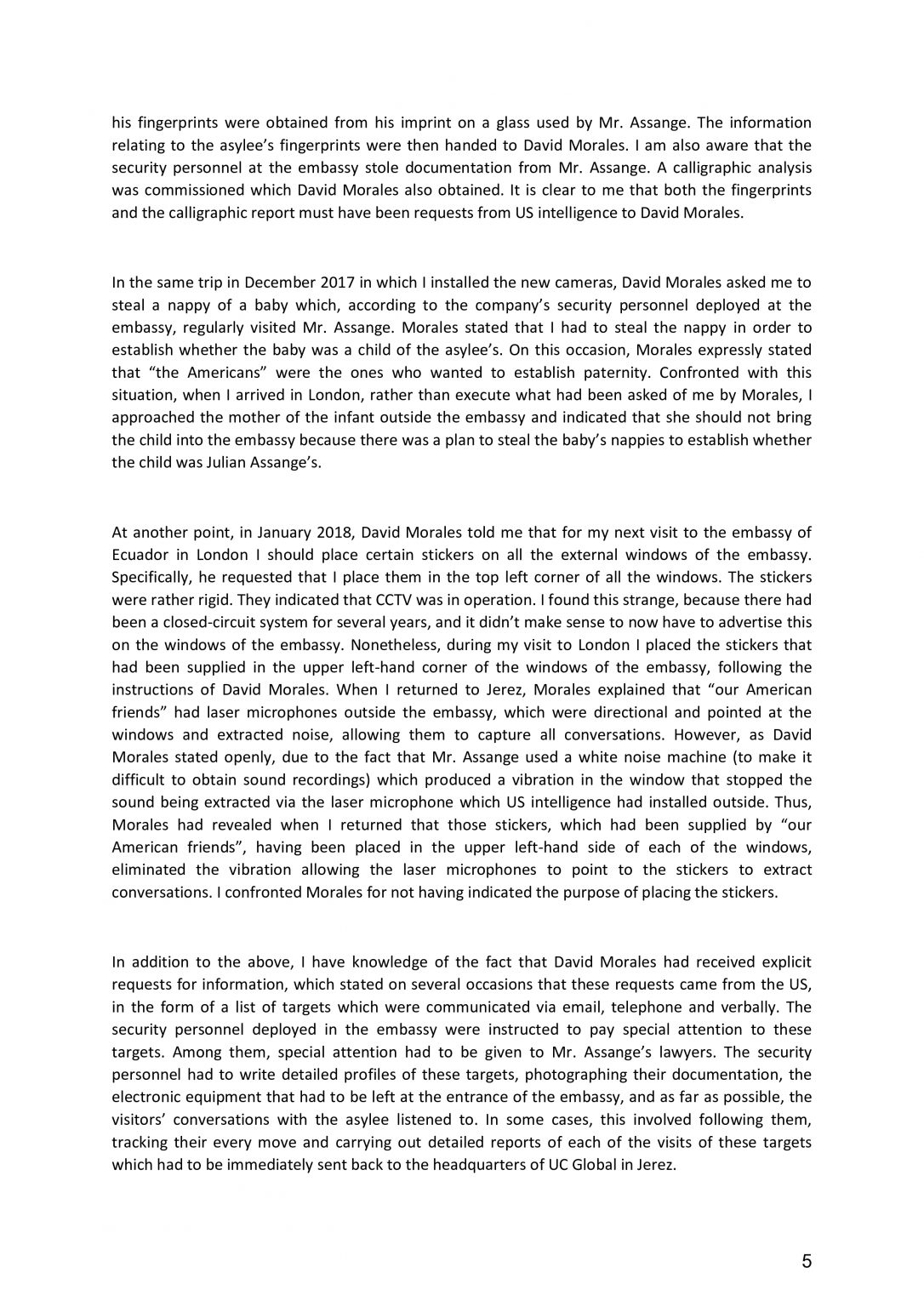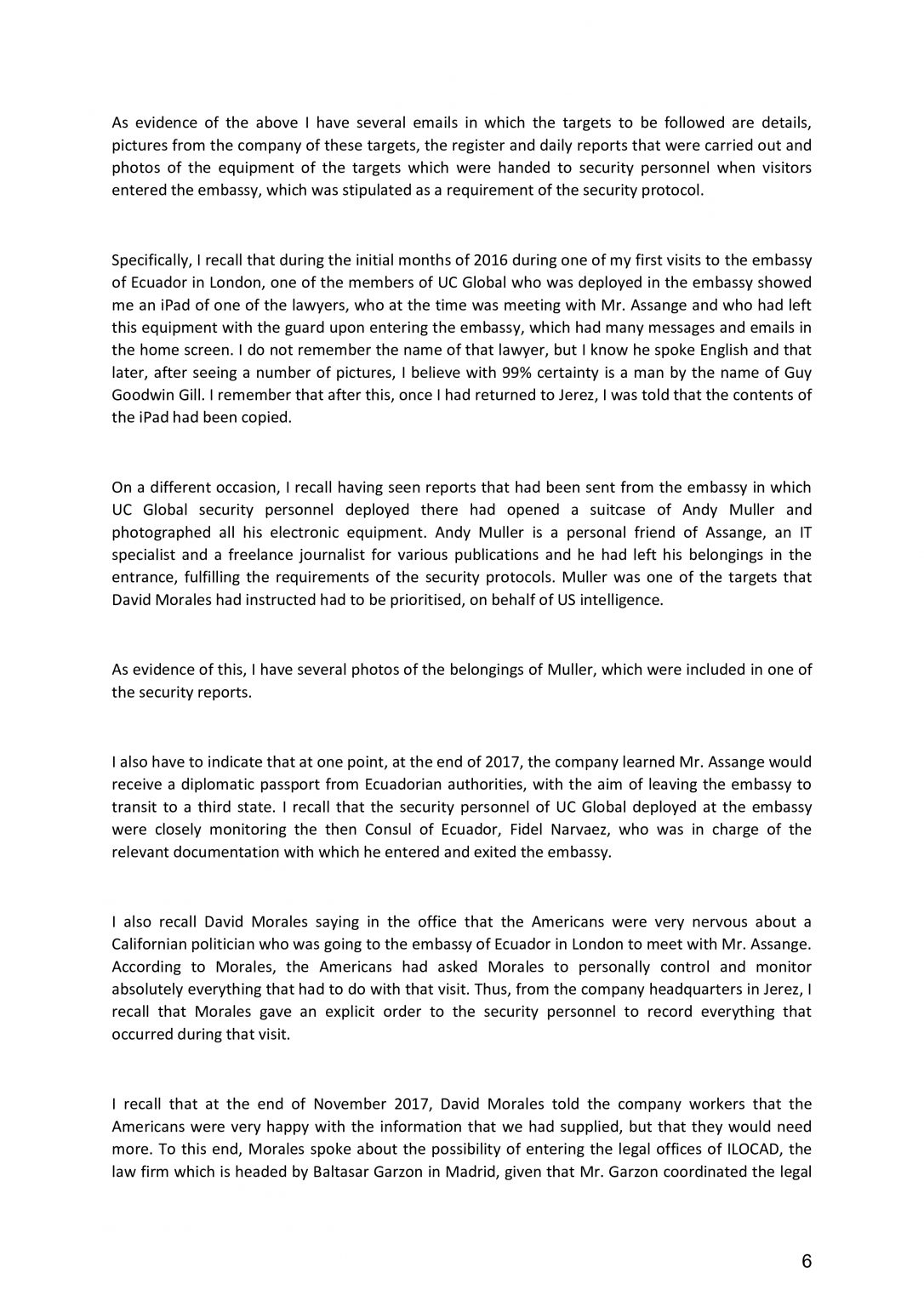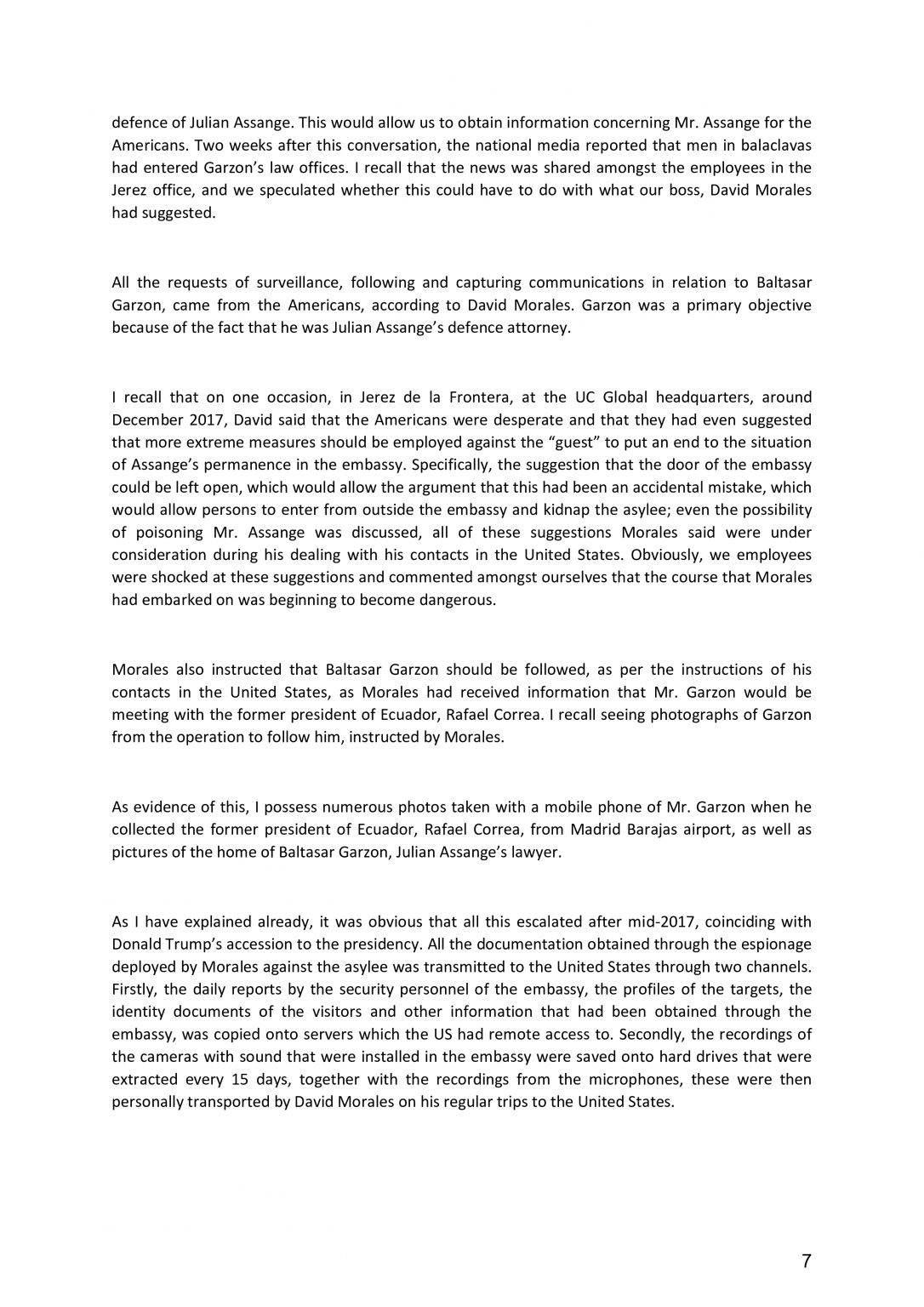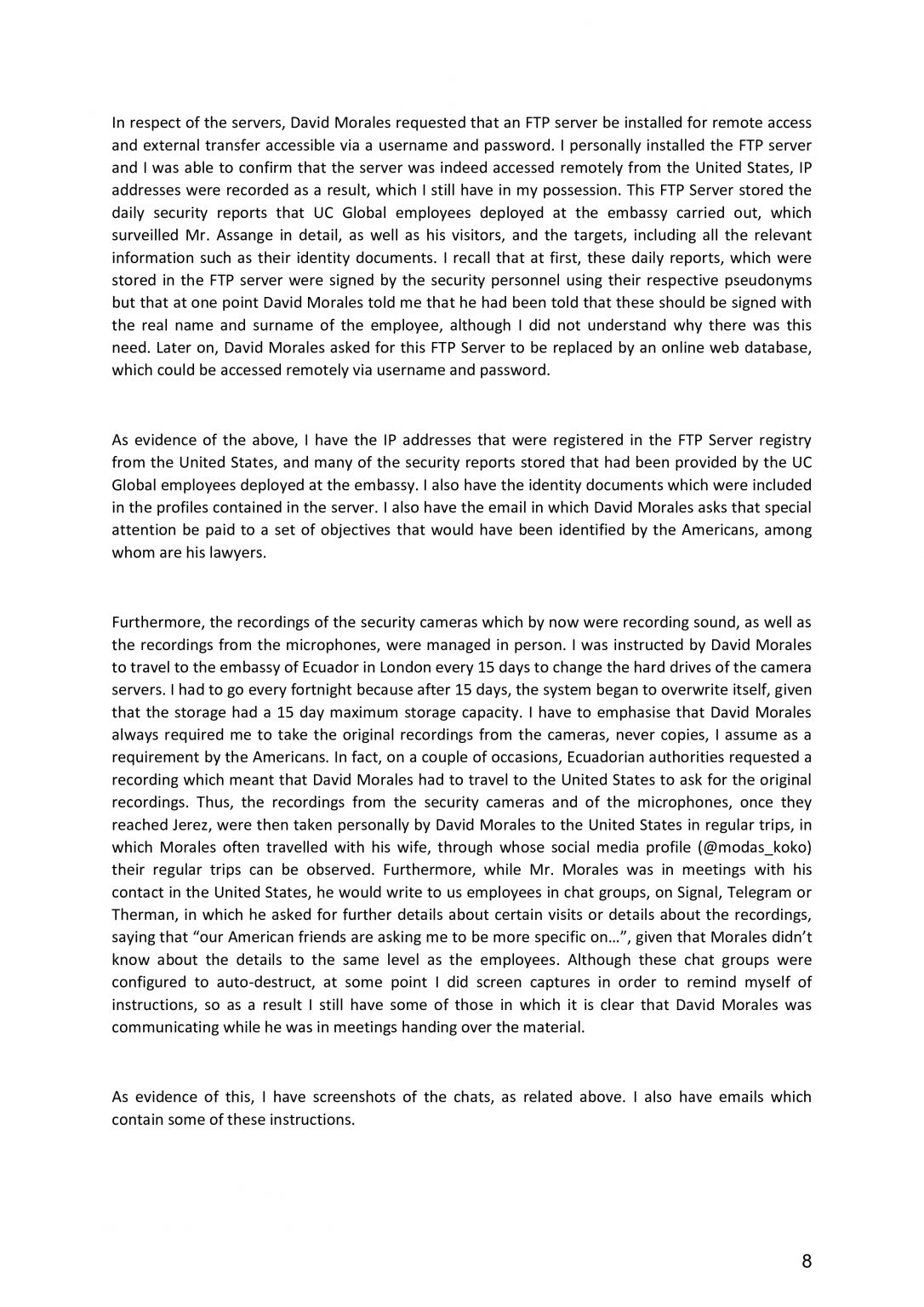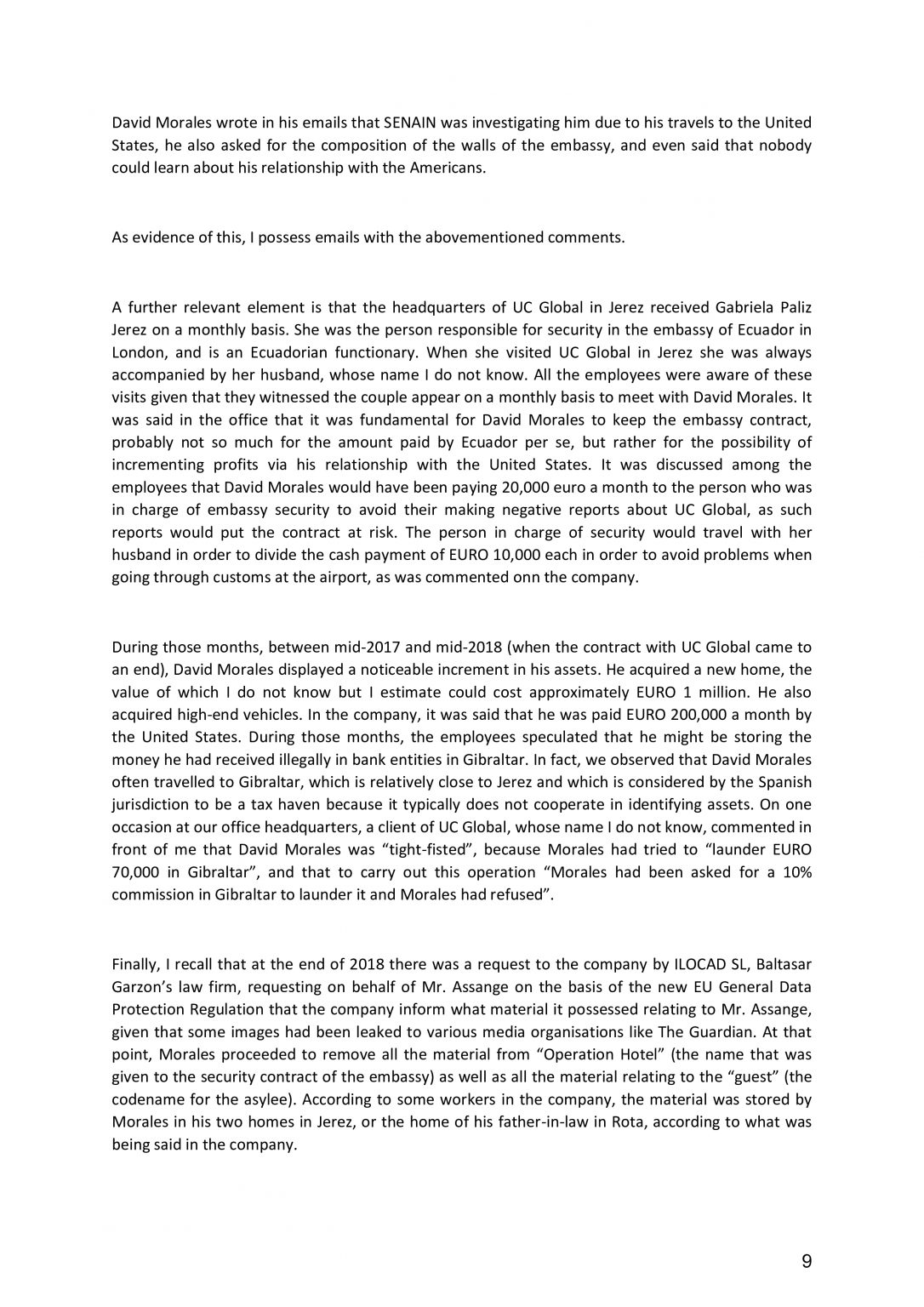https://www.craigmurray.org.uk/archives/2020/09/your-man-in-the-public-gallery-assange-hearing-day-19/Your Man in the Public Gallery: Assange Hearing Day 19September 29, 2020 in Uncategorized by craig | View Comments
Today was the worst day for the defence since the start of the trial, as their expert witnesses failed to cope with the sheer aggression of cross-examination by the US Government and found themselves backing away from maintaining propositions they knew to be true. It was uncomfortable viewing.
It was not that the prosecution had in any way changed their very systematic techniques of denigrating and browbeating; in fact the precise prosecution template was once again followed. It goes like this.
1. undermine academic credentials as not precisely relevant
2. humiliate by repeated memory test questions of precise phrasing of obscure regulations or definitions
3. denigrate relevance of practical experience
4. iterate official positions and challenge witness to say they are expressed by named officials in bad faith
5. humiliate by asking witness to repeat from memory regulations for expert testimony in UK courts
6. run though a list of qualifications and government positions relevant to the subject and make witness say one by one they have not held them
7. claim testimony is biased or worthless because it does not include government assertions at full length.
You will note that none of this has anything to do with the truth of the actual evidence, and to date almost all witnesses have easily, sometimes contemptuously, seen off this intellectually shallow method of attack. But today was another story. The irony was that, when it came to the real subject matter of the evidence, it was obvious to any reasonable person that the prosecution claims of the good conditions in the American Prison service for high profile national security prisoners are just nonsense. But it was a day when the divorce between truth and court process was still plainer than usual. Given the horrific reality this process was disguising, it was a hard day to sit through.
First to give evidence by videolink was Yancey Ellis. An attorney with a doctorate in law, Ellis has been practising for 15 years including five as a US Marine Judge Advocate. He currently practises in Alexandria, Virginia, where he is now private, having formally been a public defender. As such he is very familiar with the Alexandria Detention Centre where Assange would be held pre-trial. This includes visiting clients in the Administrative Segregation, (AdSeg or X block) where high profile and national security prisoners are held.
He testified that pre-trail detention could last many months or even years. Isolation from other prisoners is the purpose of the X block. Prisoners are in tiny cells of approximately 50 square feet, which is under 5 square metres. The bed is a shelf. On a daily basis only one to two hours are allowed outside the cell, into a small area outside at a time when nobody else is there. The second hour was generally available only in the middle of the night, so was not utilised.
Edward Fitzgerald, QC for the defence, asked Ellis whether prisoners in Administrative segregation could associate. Ellis replied “not really”. The purpose of AdSeg was to prevent it. You were never allowed out of your cell at the same time as another AdSeg prisoner. Contrary to the assertions of Gordon Kromberg, it was very difficult to talk through the thick steel doors. You would have to scream at the top of your voice to be heard at all. Ellis had tried it himself to consult with his clients. Communication was only possible if he could find a deputy to open a food flap for him. As prisoners in AdSeg were locked down, the unit was not usually staffed.
Ellis said that AdSeg was solitary confinement, on the definition of more than 22 hours a day alone with no human interaction. In practise, there was no appeal to the judicial authorities on prison conditions. “Courts will defer to the jail on how they house inmates” [which of course mirrors Baraitser’s answers to requests to ameliorate Assange’s periods in solitary confinement and other mistreatment in Belmarsh prison].
Fitzgerald pointed out that the AdSeg regime Ellis described was even without the addition of Special Administrative Measures, which bring additional restrictions. Ellis confirmed none of the clients he represented was subject to SAMs. He confirmed they did get phone access, but only to a service that allowed them to send “pre-recorded phone calls” to relatives. Fitzgerald then asked how this was affected by SAMs, but James Lewis QC objected on the grounds Ellis had said he had no direct knowledge and Baraitser upheld that.
Fitzgerald asked Lewis about provision of medical and psychiatric care. Ellis replied that the Alexandria Detention Centre does not employ a doctor. There were some social work and counselling services available in-house. Medical services were provided by a private firm. It could take several weeks to see a psychiatrist, even in a crisis. Asked about suicide risk, Ellis said prisoners could be made to wear a “special suit” [straitjacket?] and had shoelaces, belt etc. removed.
James Lewis QC then cross-examined for the US government and I think this is best conveyed as dialogue. Again this is slightly condensed and paraphrased. It is not a transcript (it would be illegal for me to take a transcript; no, I don’t know why either).
Lewis You have described US Assistant Attorney Gordon Kromberg’s testimony as “inaccurate or incomplete”. How many prisoners are there currently in Alexandria Detention Centre?
Ellis Approximately 300.
Lewis You say there are four or six cells in administrative segregation?
Ellis Yes, in the H block.
Lewis Your info comes from your visits and from prisoners?
Ellis Yes.
Lewis Have you interviewed the governor?
Ellis No.
Lewis Have you interviewed the custodial staff?
Ellis No.
Lewis Have you interviewed the psychiatrists or psychologists?
Ellis No.
Lewis You have given one side of the story. One side of the picture. Do you agree?
Ellis Do I agree there are two sides to every story?
Lewis US Marshalls annually inspect the jail. Do you disagree?
Ellis I don’t know.
Lewis Kromberg says it was inspected on August 5 2019 by US Marshalls and found fully compliant. What do you say?
Ellis Alright.
Lewis Also the Commonwealth of Virginia inspected July 23-5 2019. There have been no suicides during the current inspection period.
Ellis They have a good track record when it comes to completed suicides.
Lewis Have you read these reports? Do you know the findings of these reports? You don’t know how prisoners are assessed for different types of housing?
Ellis I have frequently asked for assessment reports in individual cases. I have never been given them.
Lewis You don’t know that Assange will be placed in Administrative Segregation?
Ellis I would bet that he will.
Lewis Kromberg has stated that AdSeg prisoners have access to prisoner programmes but you have testified otherwise. But you have never represented federal prisoners, have you?
Ellis There is no difference in treatment inside the jail between state and federal prisoners.
Lewis Were you asked by the defence to state that AdSeg is solitary confinement?
Ellis No.
Lewis There is unlimited access to your lawyers. That is not considered in your definition of solitary confinement.
Ellis Not unlimited.
Lewis AdSeg prisoners have library access?
Ellis Rarely. They may be able to go there in their time outside the cell, but only if it can be empty at that time so they do not meet anybody.
Lewis You say Assange will be housed in AdSeg on the ground floor. You cannot know that.
Ellis National security prisoners are all on the ground floor. The higher floors are for general population.
Lewis Your clients in AdSeg were a security risk. Do you know that Assange will be so deemed?
Ellis No.
Lewis How do you know Assange won’t be kept in the medical wing?
Ellis High profile prisoners are not allowed to mix with the general population.
Lewis But won’t Mr Assange benefit from a phalanx of lawyers questioning his conditions. Don’t you think his publicity and support will bring better treatment?
Ellis I don’t know that will be the effect.
Edward Fitzgerald then re-examined for the defence.
Fitzgerald Your judgements are based on your personal observations?
Ellis Yes, and the reports of my clients.
Fitzgerald And why do you say Assange will be kept on the H block?
Ellis It’s the design of the jail. Nowhere else a long term AdSeg prisoner could be held.
Fitzgerald On prisoner programmes, you say they would not be possible if it involved meeting another prisoner?
Ellis Yes, and there are no individual programmes.
For the first time in this trial, Baraitser herself now asked a question of the witness. She asked Ellis why he thought Assange would not be held in the general prison population, as he currently was at Belmarsh. Ellis said it was because he was a public figure in a high profile case. Baraitser suggested that in the UK, being a high profile figure did not mean different treatment. Ellis said he was simply recounting the actual practice of the Alexandria jail in such cases.
Baraitser’s intervention was extraordinary given she had heard irrefutable evidence from Dr Blackwood that Assange had been placed into isolation in the medical wing in Belmarsh after somebody took a brief snatch of video of him, to prevent “reputational damage” to the prison. Yes, now she was saying high profile prisoners in the UK are not removed from the general prison population. She seems to have an infallible mental filter for blocking inconvenient information.
Her less subconscious filter was next in evidence, as there was time for a quick procedural judgement before the next witness, on the question of the decision of the prison governor on Julian Assange in the razor blade in the cell case. The record of the hearing on this ran to a minimum of 19 paragraphs, the judgement itself being in paragraph 19. Baraitser had indicated she was minded only to take para 19 as evidence, although the defence said the whole document contained very useful information. I am told that paras 1 to 18 include information on the extraordinary decision to place Julian Assange in solitary confinement disguised as “healthcare”, including the fact Belmarsh chief medic Dr Daly had produced not one of the compulsory monthly medical reports in his five months on the medical wing.
In one of those accommodations I find inexplicable, the defence conceded, without forcing Baraitser to a judgement, that paragraphs 1 to 18 should be ignored and only para 19 accepted as evidence, on the understanding it did establish the existence of the razor blade and thus vindicate Prof Kopelman’s judgement, and showed the charge had merely been dismissed as not timeous.
Yancey Ellis’s cross-examination above reads very well, and he did provide good answers to the prosecution attack. But he sounded rattled and nervous, and the performance was less convincing than it reads. This was to get much worse for the defence.
The next witness was Joel Sickler. He has a Master’s degree in the administration of justice and has worked for forty years in sentencing and advocacy. He is head of an organisation called Justice in Alexandria, Virginia, an expert in prison conditions, and has visited over 50 prisons across the United States. His organisation makes representations to the court on which institutions are suitable for a prisoner. He testified that he had made dozens of visits to the Alexandria Detention Centre.
He testified that in line with policy Assange would be placed in AdSeg due to his involvement in national security issues and concerns he might pass secrets on to other prisoners. He might also be categorised as needing protection from other prisoners and from self-harm. He would have zero to very limited contact with other prisoners. Sickler characterised Kromberg’s claim that inmates could communicate with each other through the steel doors and thick plexiglass windows as “ridiculous”. If SAMs were applied on top, that involved statutory isolation.
Sickler said that his knowledge of post-incarceration conditions at ADX Florence in Colorado came largely from reading reports. He had one client in there who was not subject to SAMs but was still effectively in solitary confinement for twenty years, despite a clean conduct record. Fitzgerald asked about provision of medical and psychiatric care, and Sickler stated that across the federal system he had dozens of clients who had found a way to commit suicide. In ADX specifically, there was a possibility of being transferred to a Federal medical centre in extreme cases.
At the ADX, Assange would be kept in the SSU known as the H block. With or without SAMs, contact with other prisoners would be completely barred. Contact with the outside world would be extraordinarily limited. Any contact permitted with family would be monitored by the FBI. One 15-minute phone call was allowed per month. Post conviction, contact with lawyers was very limited.
Fitzgerald asked how you could appeal against SAMs or other prison conditions. Sickler replied that appealing even over minor administrative matters virtually never succeeds. SAMs can only be varied by the Attorney General. In the prison system generally, Sickler had filed many thousands of requests on prison conditions and perhaps a dozen had succeeded. With SAMs there was effectively no chance. Solitary confinement could be indefinite in ADX – there was no upper limit.
Fitzgerald asked about changes in the prison after the Cunningham Mitigation settlement. Sickler said changes had been nominal. Any real improvement had only affected lower security prisoners. On prison conditions in general “Official statements, public pronouncements are one thing, reality in prison is something else”. The affidavit by Dr Alison Leukefeld for the government looked great on paper but was not the practice. On the other hand, reports by organisations like the
Marshall Project exactly matched with his practical experience. Official statistics, like only 3% of federal prisoners having mental health problems, “do not ring true to me”. There was a significant risk Assange would not receive adequate physical and mental healthcare.
Clair Dobbin then rose to cross-examine. Again, I will report this as dialogue.
Dobbin What do you actually do? Do you work for the defence in cases?
Sickler Yes, I help identify the appropriate institution for imprisonment and help clients navigate the prison system.
Dobbin So prisoner advocacy?
Sickler Yes.
Dobbin So you only go to prisons to visit those you represent?
Sickler Yes.
Dobbin So you are not a prison inspector?
Sickler No, I am not.
Dobbin So you are not an academic?
Sickler No, I am not.
Dobbin So you are not a psychiatrist?
Sickler No, I am not.
Dobbin So you are not a researcher?
Sickler No, I am not.
Dobbin So you are not a doctor? You don’t get to see medical records?
Sickler No, I am not. But I retain a medical consultant. I look at medical reports and I initiate conduct reports on a daily basis.
Dobbin But you don’t have across the board access? Only in respect of your clients?
Sickler That is right.
Dobbin But you are not a clinician. You do not have the authority to validate medical opinion?
Sickler No, but I employ a medical consultant.
Dobbin Is this consultant a clinical psychiatrist?
Sickler No.
Dobbin Have you represented anybody on SAMs?
Sickler No. SAM-like procedures, but not SAMs which can only be ordered by the attorney general.
Dobbin But you said clearly in your affidavit that you have SAM clients. Did you put that there because you want to give the impression you have more expertise than you do?
Sickler Of course not.
Dobbin You have never been to the AdSeg area of Alexandria Detention Centre. So what is your opinion based on?
Sickler Information given to me by numerous third parties including my clients, other lawyers and the public defender.
Dobbin But did you not think it was important to make plain in your statement this is hearsay?
Sickler I didn’t see the distinction as important.
Dobbin Did you see the rules governing expert evidence to this court?
Sickler Yes. I did not think that was against the rules.
Dobbin You have seen Kromberg’s statement. Do you accept there may be legitimate reasons for Assange to be in AdSeg?
Sickler Absolutely.
Dobbin Prisoners in protective custody receive all the same services and rights as other prisoners?
Sickler Of course.
Dobbin Do you agree that he would be able to attend programmes with other prisoners?
Sickler Not if under SAMs.
Dobbin Do you agree that those in protective custody can meet with other prisoners?
Sickler Certainly.
Dobbin Do you agree there are no restrictions on access to lawyers?
Sickler Absolutely, there is a constitutional right.
Dobbin Do you agree that SAMs can only be imposed by the Attorney General?
Sickler Yes.
Dobbin What is the procedure for that?
Sickler It involves consulting the intelligence agencies.
Dobbin It needs the certification of one of the heads of one of the security agencies that the prisoner is a threat to the United States?
Sickler Yes.
Dobbin You cannot know that Assange will get SAMs. And SAMs differ from person to person.
Sickler Yes, correct.
Dobbin In the case of convicted terrorist El-Haj, he was under SAMs but still allowed access to family members?
Sickler Yes, his immediate family.
Dobbin Provisions depend on the individual prisoner?
Sickler Yes.
Dobbin The judge who convicted [another prisoner not heard clearly] entered the MMC personally to check on prison conditions. Does that not show there is good judicial supervision?
Sickler I have seen it, on rare occasions.
Dobbin SAMS does not restrict access to lawyers.
Sickler How do you access lawyers in Florida ADX? And pre-trial there are scheduling difficulties. If he is under SAMs his lawyer will himself be subject to surveillance.
Dobbin What evidence do you have for that?
Sickler The
Lynne Stewart case. Lindsay Lewis.
Dobbin Lynne Stewart was running a message for jihadists (she added much alleged detail). Her client was subject to SAMs to prevent him running a terrorist organisation.
Sickler The case, and others, had a chilling effect on the willingness of lawyers to take on SAM cases involving national security.
Dobbin The Alexandria Detention Centre is not overcrowded
Sickler No, it’s below capacity. It is a well-run jail. The staff are very professional.
Dobbin Kromberg sets out very substantial medical staffing levels.
Sickler I understand those are mostly private contractors, not prison staff. In practice prisoner needs are not meaningfully met. It takes a few days to a few weeks to get treatment.
Dobbin But they do get sufficient treatment?
Sickler There is no real psychiatric intervention. This is not top tier. Usually prisoners are just medicated.
Dobbin So they have access to medication? And someone to talk to?
Sickler Correct.
Dobbin Your evidence only refers to one suicide, at the Metropolitan Correctional Centre.
Sickler That is just one example, one of my current cases.
Dobbin But two prison officers have been charged for that.
Sickler We are always swift to blame a little man.
Dobbin It was not the protocols that were wrong, just two people did not do their job. [This is possibly the Epstein case.] The ADC has a good record on suicide.
Sickler It is a very very arduous, almost torturous system of confinement in AdSeg. Assange has depression and is on the autism spectrum. It will be unbearable for him. Even with healthy clients of mine, there has been a terrifying deterioration in these conditions.
Dobbin The evidence is they are successful in preventing suicide at the ADC.
Sickler Yes, they have a stellar record.
Dobbin In the Babar Ahmad case (2012), the European Court of Human Rights considered SAMs and ruled it was not an unacceptable regime. Has anything changed since 2012?
Sickler Not significantly.
Dobbin You initially said in your report Assange might not be sent to ADX. Now you change your mind. Sentencing is at the discretion of the judge. There is no basis for your report.
Sickler I changed my mind in the intervening period. From the second superseding indictment, the charge is now espionage and the government alleges Assange is a continuing threat to the USA.
Dobbin You were a consultant in the Reality Winner case. She only got 53 months.
Sickler She was a qualitatively different kind of defendant.
Dobbin She was an insider. They normally get harsher sentences. She is serving her sentence in a medical facility.
Sickler Not on medical grounds. It is the closest federal incarceration facility to her family.
Dobbin You say Assange would be in solitary confinement. But Kromberg states that most inmates in special housing are in double cells with a cell-mate.
Sickler That can be worse. Many are violent and mentally unwell. Assaults by cellmates are frequent.
There followed an interchange where Dobbin tried to trip up Sickler over the procedures for committing someone to ADX Florida, but he proved knowledgeable in detail.
Dobbin The procedures say that prisoners with health conditions will not be sent to the ADX unless there are serious security concerns.
Sickler Abu Hamza is there and he has no arms.
Dobbin There are just 14 people in ADX in this category. You have not been there. How do you get your information?
Sickler Reports including the Lowenstein Center and the Center for Constitutional Rights
Dobbin Prisoners at ADX do get family visits.
Sickler How often would Mr Assange get family visits? Why don’t you tell the court?
Dobbin [name not heard] a convicted terrorist who attempted to blow up a plane is in ADX and gets family visits and phone calls.
Sickler He is allowed communication with two named family members. But how often is he allowed to call or see them?
Dobbin You have said solitary confinement at the ADX can be indefinite?
Sickler That’s my impression.
Dobbin What is your source of information?
Sickler It’s from prisoners and lawyers. It’s anecdotal, I admit. But are you saying at some point the US government will decide that Assange won’t be likely to divulge classified information?
Dobbin Do you understand that there are three levels in the H block that defendants can work themselves through to get out?
Sickler No.
Dobbin Did you know that even in SAMs, prisoners can mingle together for social periods?
Sickler No, I did not.
Dobbin (Quotes ECHR judgement endorsing the stepdown programme)
Sickler You have to be within 2 years of release. If you are designated by the Attorney General for SAMs, you are not eligible for that programme. Conditions in the ADX are extraordinarily arduous.
Dobbin Kromberg sets out the stages and says that stage 3 allows contact with other prisoners
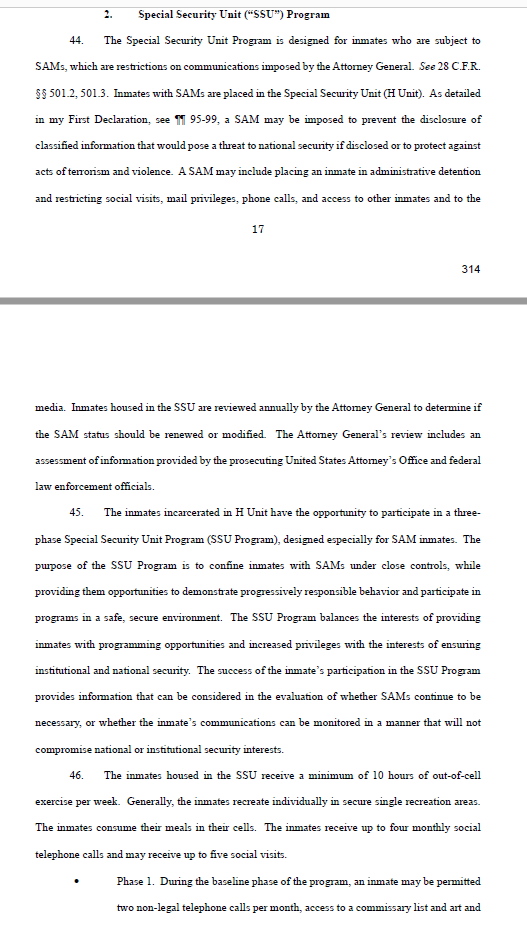
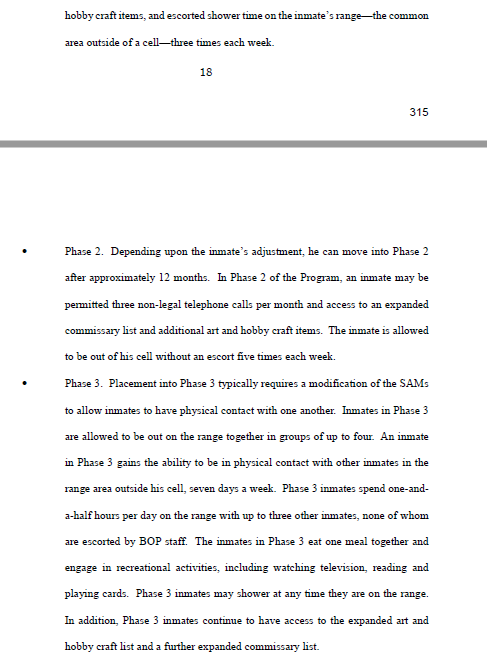 Sickler
Sickler It sounds awful. Even when you reach phase 3 with the extra privileges. If they do that in practice, well that’s wonderful. It still sounds awful to me.
Dobbin There is a progression.
Sickler I should like to know how long it takes.
Dobbin Do you know the numbers who have come out of the ADX? Shouldn’t you know these facts?
Sickler The place is torturous. That is not in dispute.
Dobbin How inmates are treated will depend on how big a security risk they are.
Sickler Precisely.
Dobbin Medical care at the ADX is not affected by SAMs.
Sickler OK.
Dobbin Do you agree that as a result of the Cunningham Settlement there has been a substantial improvement?
Sickler I cannot say.
Dobbin Gordon Kromberg testifies that ADX Colorado has more mental health provision per inmate than any other federal prison.
Sickler That is needed because of the extreme circumstances people are kept in.
Dobbin Does that not indicate to you that the standard of care is good?
Sickler Is there meaningful patient/clinician interaction? I don’t know.
Dobbin The Cunningham Settlement led to over 100 people being removed from ADX.
Sickler But how many had SAMs?
Dobbin We have established that you don’t know anything about the movement out of people with SAMs.
Sickler Yes, you have established that.
Dobbin As a result of the Cunningham Mitigation two new mental institutions were established.
Sickler Yes, for schizophrenia and psychoses.
Dobbin A Department of Corrections report of 2014 shows that some inmates never want to leave ADX as they find the standard of care so good. They re-offend to get back in.
Sickler They cherry-pick whom they speak to. Most prisoners are desperate to get out.
Dobbin Every report gets an official response from the Board of Prisons and policies are constantly upgraded.
Sickler Yes, but I just don’t see results in practice. I had one client recently, a prisoner, who rather than being treated was beaten up and thrown naked in the hole. It took months before a court got him out. Another was refused his diagnosed and prescribed medicines as not in the BoP formulary.
Dobbin In the first case there was judicial review. So the system works.
Sickler After six months.
There was more of this. The cross-examination lasted two and a half hours. Again, it seems much more convincing from Sickler written down than it did live, where he appeared shaken by the aggression. The answers he gave which sound like firm responses, sounded petulant and throwaway when he delivered them. He gave the impression that it was not worth his time to engage with the unreasonable Dobbin and, while I heartily sympathise, that was not the requirement of the moment.
Sickler very definitely gave the impression he was at times agreeing with the prosecutor just because that was the easier line of action. He often did so in a voice that suggested scepticism, sarcasm or mockery, but that was not plain in his words and will not be apparent in the transcript. In normal life, making short sarcastic responses like “Oh yes, it’s marvellous” in reply to ludicrous assertions by the prosecution about the provision of US supermax prisons, may work as a form of ridicule; in a court setting it does not work at all. In fairness to Mr Sickler, being at home rather than actually in a court session will partly account for it. But the court record will say Sickler says prisoner provision in US supermax prisons is marvellous. It doesn’t note sarcasm.
Dobbin is officious beyond the point of offensive; she comes over as properly obnoxious as a person.
The unpleasant irony in all this is that both Sickler and Ellis were mocked and scorned for their lack of personal knowledge of ADX Colorado, when prosecution and judge had combined just on Friday to bar two witnesses who the defence both wished to testify, who had expert personal experience of ADX Florence. That is yet another striking example of the fact that this process is divorced from any genuine attempt to find truth or justice.


